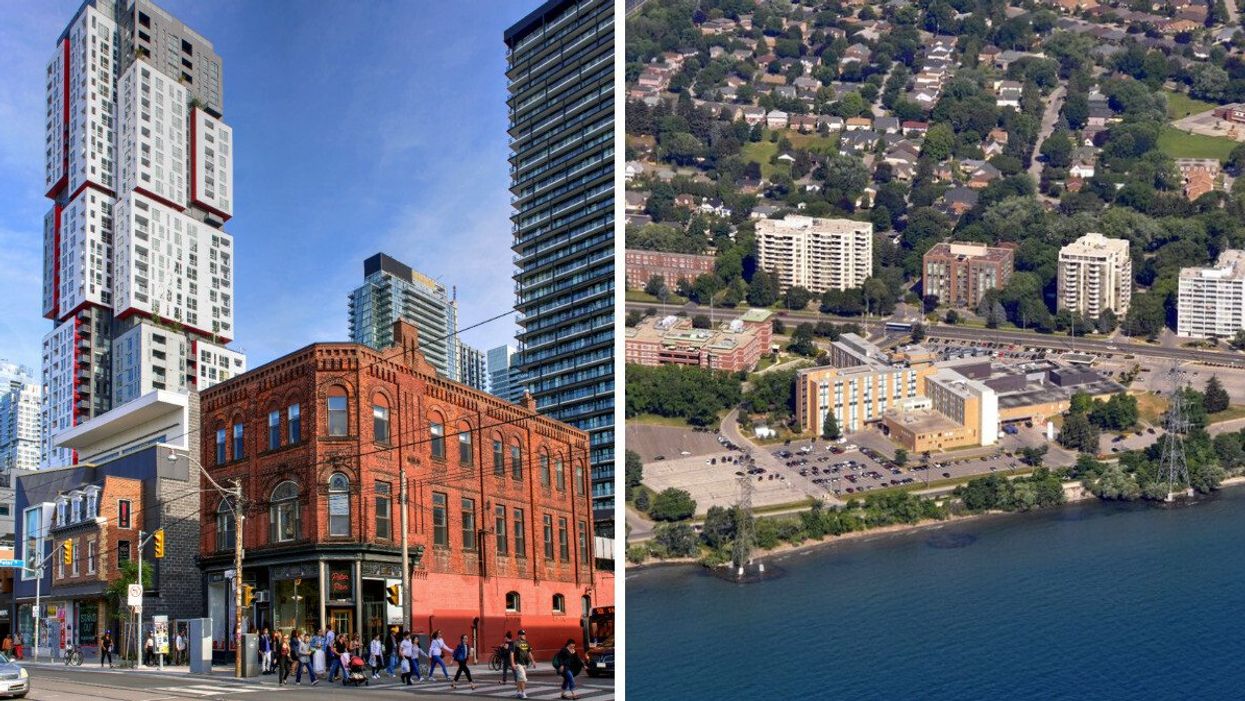Ontario Wants To Make It Harder For Landlords To Evict Tenants & Here's What Could Change
There are various steps that will need to be taken.

Condo building in Toronto. Right: Aerial view of homes in Burlington, Ontario.
The Ontario government announced that they are proposing changes to make it harder for landlords to evict tenants.
On Wednesday, the government stated that they are taking steps to bring more adjudicators and staff to the Landlord and Tenant Board to speed up decisions and make overall tenant protection stronger.
The government says it plans to invest $6.5 million "to appoint an additional 40 adjudicators and hire five staff to improve service standards and continue to reduce active applications and decision timeframes at the Landlord and Tenant Board."
"Residents and rental housing providers deserve fast results, and government bureaucracy should not stand in the way," said Attorney General Doug Downey in the press statement.
How do the proposed changes help tenants?
Well, for starters, with the changes, tenants will have the right to install ACs in their units.
"The government is also proposing to strengthen protections against evictions due to renovations, demolitions and conversions, as well as those for landlord's own use," they added.
The proposed changes will mean tenants evicted due to the landlord's decision to move in will require the landlord (or their family) to occupy the unit by a "specific deadline."
However, when a tenant is being asked to leave due to renovations that the landlord would like to make, they must follow these three steps.
- Landlords will need to prove that the unit is vacant for renovations by sending a "report from a qualified person."
- They will have to give the tenant updates on the renovations in writing — if they plan to occupy the unit again.
- Provide tenants with 60 days to move back into the unit after the renovations are done.